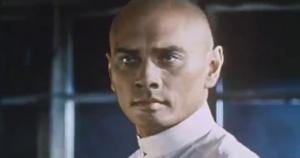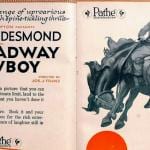 Being sensible, we are all for reason and the sane wish to live taking reality into account. Fyodor Dostoevsky agrees, being imminently sensible and magnificently reasonable.
Being sensible, we are all for reason and the sane wish to live taking reality into account. Fyodor Dostoevsky agrees, being imminently sensible and magnificently reasonable.
“If reality stands in the way of reason, so much the worse for reality.”*
A character in the novel Brothers Karamazov forces us to consider what to do when reason and reality appear to clash and cause conflict in our hearts and minds.
How could this be?
Imagine a court case where all the evidence points to the guilt of a person: Bob. Consider this: Bob is not guilty in reality. Other than Bob and the actual murderer, nobody knows Ivan is innocent and there is no evidence Bob is innocent.
If Bob is conscientious enough, reasonable enough, he may come to doubt his own memories. He may begin to worry that he is guilty.
The jury must convict Bob, but the jury is wrong.
Justice is blind and must be blind.
The court cares more for reason than reality, since reality is (sometimes) inaccessible. We know our judgment may be false, but must do the best we can. In the United States, we have (at least in principle) determined that we would rather err on the side of not convicting the innocent, even if the guilty are freed. We set the standard of evidence at “beyond a reasonable doubt.” Even then, we know that we might be wrong: reason (as far as it goes) and reality might clash.
Best Experience and Mystic Experience
Dostoevsky adds another element: our deepest experience. If we (personally) know a person and know them as well as a person can be known by another person, we might have a good reason to believe they were not guilty. Of course, we all know we can also be wrong here as well, but general character is evidence. This is why there are “character witnesses” in a trial. The brothers of Bob might know Bob so well, almost no amount of circumstantial evidence (also often wrong) would change their minds. Sadly, nobody else can have access to this experience with the brothers. After all, they might be lying or kidding themselves to save Bob.
No person can be sure and so we must live by faith: the best combination of reason and experience we can find. So Dostoevsky suggests it is with God, evil, and other issues. If we experience a good and loving God, then we will need more evidence for God’s non-existence or evil. Yet we must doubt our experience, or at least our interpretation of our experience, when that interpretation (or even experience!) is called into question.
So we must live a human life, with best reason and experience, certainly, but there is one other problem to consider. Nobody can know (other than God) the quality of our experience. Suppose, for a moment, the quality of my love for Bob, my friendship for him, makes it impossible to doubt. That is unlikely, but if we move to a mystical experience, more profound than any normal experience, then we should pause. One stands before the iconostasis and sees “the True Light.” This can be said, but not shared, in the deep quality.
We would live in the world with our reason, defending with accessible evidence, our own sanity or interpretation of the event. One bit of evidence is our experience, but this evidence to anyone but us will not be as serious as we must take it personally. The man who saw the True Light may not actually be able to doubt.
How should we then live?
I think we should live as best we can in the world.**
As far as we are in the world, we give reasons accessible to all and share our experience as a testimony to others. We act on reason and experience. We are like the jury: voting best we can in ways that we can share. We do not defy or deny any argument or any report of another’s experience. We must take those into account. There will always be a gap in certainty in our actions: acting only beyond a reasonable doubt, not beyond all doubt. This is faith in a practical sense in this life.
However, we also may have access to a deeper experience, a mystical one, that cannot be proven to others, but undergirds our life. We live by faith, a reasonable hope, in the world, but with the certainty internally of heaven. I have known some, very sane and sensible folk, who have lived by reason and experience in the world, who also had access to experience, beyond what they could share. This informed their inner life and that life counts!
This is the mystical faith that brings joy that surpasses external understanding.
—————————————
*Thank you faculty member Megan Mueller in the discussion in The College regarding The Brothers Karamazov for bringing some of this to the surface.
**I take this to be Dostoevsky’s view at the end of Brothers Karamazov, but if not the idea was inspired by my (wrong) reading of him.












